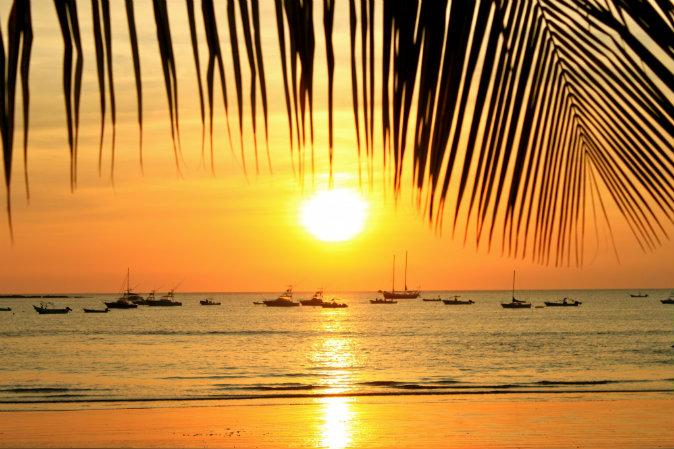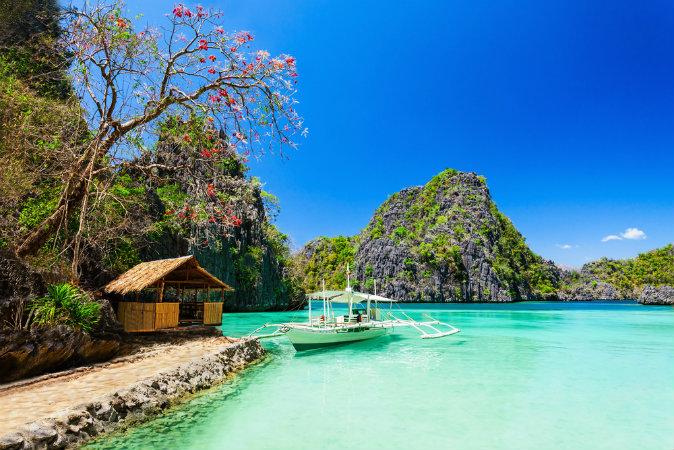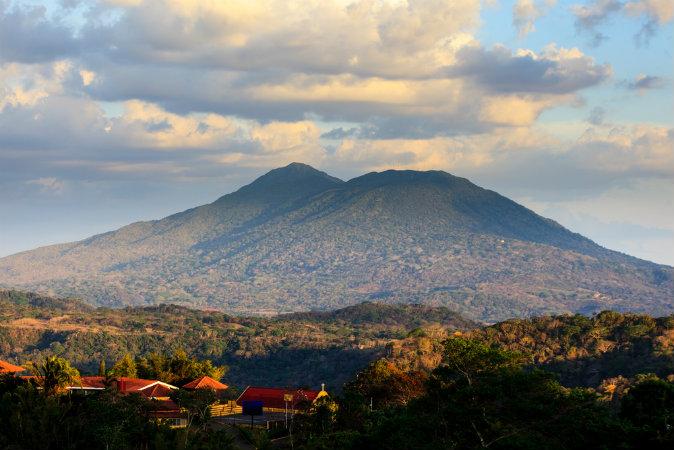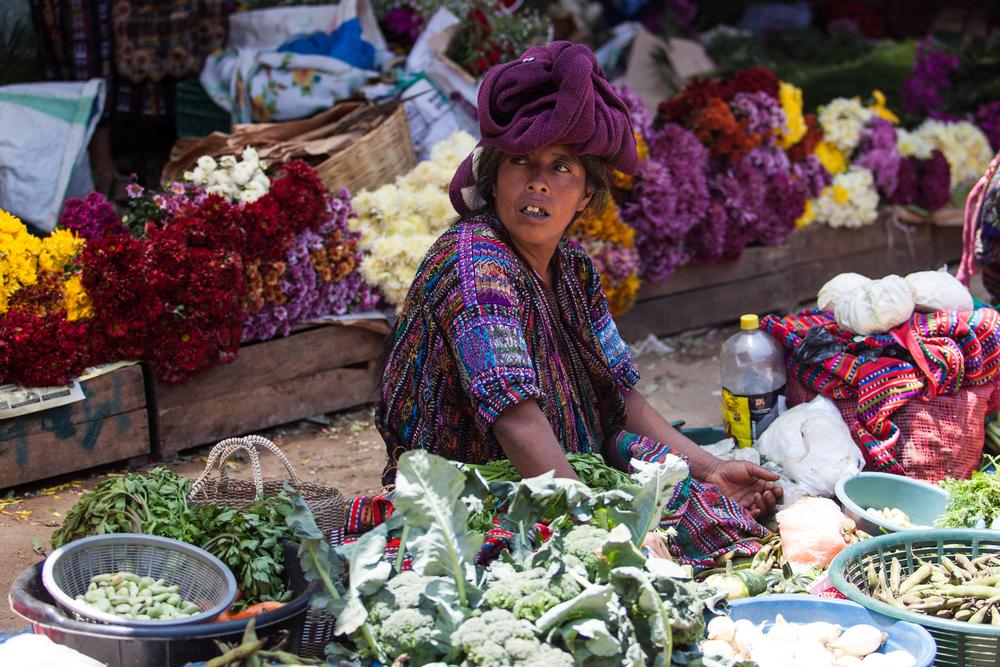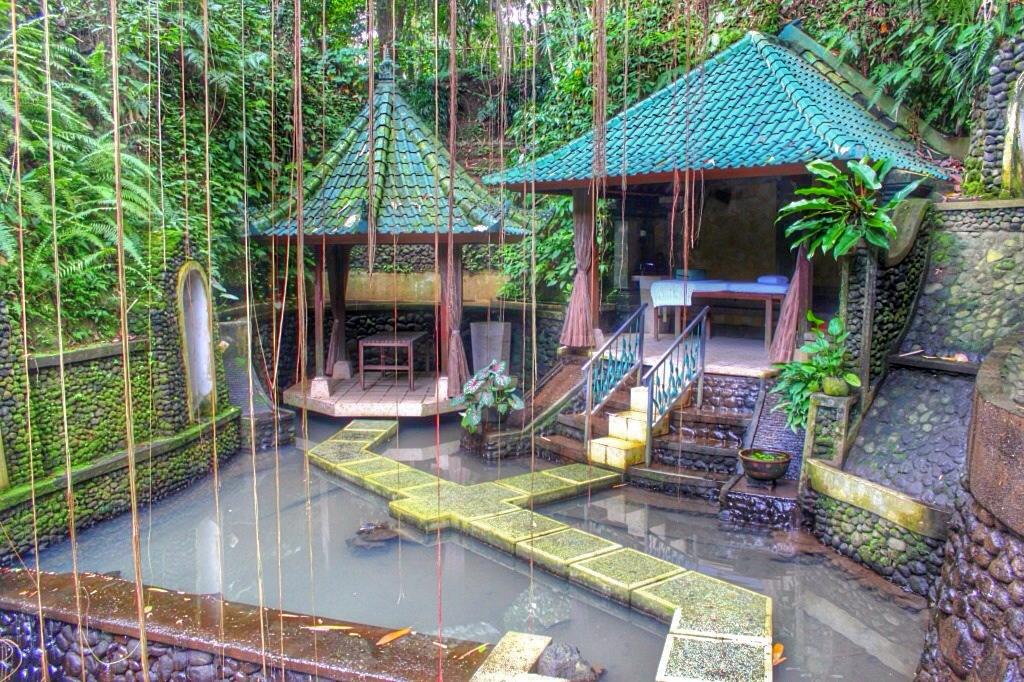Costa Rica is a magnificent country full of active volcanos, waterfalls, lush rain forests, cloud forests and rare wildlife. It is the most developed country in Central America, but also the most expensive, so be prepared to bust your wallet wide open. You can get around Costa Rica by private minibus or public transportation, with the latter being the most inexpensive, but still on time, reliable and in a very good quality. Check time schedules for the public bus here. Some routes are also covered by International bus lines such as Ticabus and King Quality.
Top Things to See and Do
- Hit the beach. Beaches at the Pacific coast are known for being the best surfer spots as they have the biggest waves. You'll find many nice beaches along the coastline of Guanacaste.
- Learn how to surf. Along the Pacific coastline there are plenty of places to learn such as Tamarindo, Manuel Antonio and Puerto Viejo.
- Hike a volcano or two. There are many volcanos in Costa Rica, and some of them are rather easy to access. You can take a day tour to Poás volcano from San José or visit Arenal, which is 90 north from the capital. Most of the volcanos are close to waterfalls or wildlife, so you can easily include that in the trip.
- Visit a National Park. With 26 national parks, Costa Rica is the ideal place to watch wildlife, stunning waterfalls or lush rain forests. Monteverde Cloud Forest, Manuel Antonio and Arenal are some of the most popular ones.
- Jungle canopies and hanging bridges. This country has several zip lines and canopy hanging bridges. You will find the widest of the latter in Monteverde Cloud Forest.
- Turtle nesting. Several beaches in Costa Rica offer the opportunity to see turtles nest along the shoreline. The best time to see them is in April and May. Tortuguero National Park at the east coast is one of the best places to spot them, but other beaches at the west coast are perfectly fine as well. The nesting time depends on the breed.
- Visit a coffee plantation. Costa Rica is known for producing some of the best coffee in the world. You'll have lots of opportunity to visit a coffee plantation, see how it all works and taste it, too.
- Chase waterfalls. Costa Rica has beautiful and well-kept nature surroundings, and waterfalls are not a rare sight around here. There’s a significantly stunning one up in Liberia, but don’t miss out on La Paz Waterfall Gardens or La Fortuna.
Best Time to Go
Like most other countries in Central America, high season in Costa Rica is between December and April. If you travel during this period, though, it’s more expensive and crowded. Plus, it’s much more lush during the rainy season, and this paves the way for some pretty awesome pictures.
Visa
Travelers from most countries will get a 90 day visa at the border, but countries like Australia and Japan need a visa in advance. Make sure to check with your local embassy for advice.
Stay Safe
Costa Rica is one of the safest countries in Latin America regarding crime and in general you shouldn’t worry about your safety. This country is home to both active volcanos (which tend to erupt), there are often earthquakes, and its wildlife includes poisoneous snakes, so do keep an eye open. However, if you keep updated on the lastest news and stay away from active craters, you should be just fine.
Costs
Living expenses in Costa Rica are quite high, and you should expect to pay between $50 and $100 per day. There are some ways to save money, though – just keep on reading.
How to Save Money
- Take public transportation. The public buses in Costa Rica are really well kept and reliable! On several stretches, they match the buses in Mexico (which are super good!) and Tica bus. They are also extremely cheap compared to the alternative, which is the private minibusses. Just to name an example: We paid $5 to get from Monteverde to San José in a large bus with aircon and fancy leather seats, and the minibus (Intershuttle) costed $50.
- Drink the tap water. It’s perfectly safe to drink water from the tap, and it will save you a few dollars a day.
Eat at Soda. These are family owned restaurants that offer cheap meals for around $2. They serve nice local food and can be found in most cities throughout the country. - Travel off-season. I guess this goes for most countries, but Costa Rica is just as beautiful in low season and the prices are much lower. Plus, the rain forests and country side will be more lush.
- Practice your Spanish. If you speak the language, taxi drivers and local vendors are more likely to expect you to bargain – and thus give you a fair price.
- Get more advice in my post about traveling in Costa Rica on a budget.
Copyright © 2014 by Adventurous Miriam. This article was written by Miriam Risager and originally published on adventurousmiriam.com.

